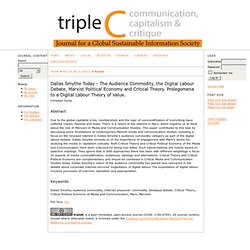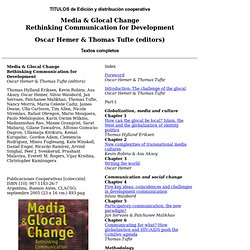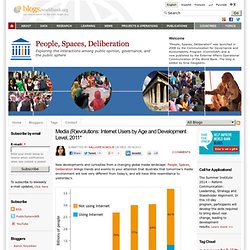

Is this microphone on? Sharing Open Knowledge Feedback (Part 2)
Political discourse. Lessons learned from a year of advocacy impact evaluation. Posted by Claire Hutchings Monitoring, Evaluation and Learning, Campaigns, Kimberly Bowman Global Adviser, Gender and MEL 28th Feb 2013 Evaluation gurus Kimberly Bowman and Claire Hutchings reflect on what Oxfam has learnt in our efforts to monitor the effectiveness of our advocacy campaigns.

Those of you who regularly read this blog might already be aware of some of Oxfam's efforts to "tackle the effectiveness challenge. " Back in October, Jennie Richmond explained Oxfam's efforts to address learning and accountability through Performance Effectiveness Reviews - and Karl Hughes provided a slightly wonkier explanation of how things were going on the From Poverty to Power blog. Six months later, we are following up with some reflections on the lessons we've learned from a year and a half of advocacy impact evaluations. What we're trying to do: process tracing Advocacy and campaigning impact evaluation is challenging - but not impossible. Confused yet? Four big lessons from year one 1. 2. 3.
Foucault and social media: life in a virtual panopticon. This is the first instalment in a three-part series.
Part 2. I tweet, therefore I become Part 3. The call of the crowd You start the day bleary-eyed and anxious. You stayed up late last night working on a post for your blog, gathering facts and memes from about the web and weaving them into an incisive whole. You jump on HootSuite and start sharing targeted content: Facebook for friends, tweets for professional contacts. How did we ever get by without social media?
The French philosopher Michel Foucault (1926-1984) has a set of insights that can help clarify how social media affects us on a psychological level. A Foucaultian perspective on social media targets the mechanism that makes it tick: sharing. ‘I sent this – it is part of my work. Foucault understood how being made constantly visible impacts on us psychologically. Bentham’s Panopticon, Foucault argues, functions to make prisoners take responsibility for regulating their behaviour. In sharing online, we are playing to a crowd. Dallas Smythe Today - The Audience Commodity, the Digital Labour Debate, Marxist Political Economy and Critical Theory. Prolegomena to a Digital Labour Theory of Value.
Dallas Smythe Today - The Audience Commodity, the Digital Labour Debate, Marxist Political Economy and Critical Theory.

Prolegomena to a Digital Labour Theory of Value. Christian Fuchs Abstract Due to the global capitalist crisis, neoliberalism and the logic of commodification of everything have suffered cracks, fissures and holes. There is a return of the interest in Marx, which requires us to think about the role of Marxism in Media and Communication Studies. Keywords. Media & Glocal Change. Media & Glocal Change Rethinking Communication for Development Oscar Hemer & Thomas Tufte (editors) Thomas Hylland Eriksen, Kevin Robins, Asu Aksoy, Oscar Hemer, Silvio Waisbord, Jan Servaes, Patchanee Malikhao, Thomas Tufte, Nancy Morris, Maria Celeste Cadiz, James Deane, Ulla Carlsson, Tim Allen, Nicole Stremlau, Rafael Obregon, Mario Mosquera, Paolo Mefalopulos, Karin Gwinn Wilkins, Madanmohan Rao, Manne Granqvist, Sarat Maharaj, Gilane Tawadros, Alfonso Gumucio-Dagron, Ullamaija Kivikuru, Kemal Kurspahic, Gordon Adam, Clemencia Rodríguez, Minou Fuglesang, Kate Winskell, Daniel Enger, Ricardo Ramírez, Arvind Singhal, Peer J.

1996-9-3.pdf (application/pdf Object) Di_wp36.pdf (application/pdf Object)
Exploring the interactions among public opinion, governance, and the public sphere. New developments and curiosities from a changing global media landscape: People, Spaces, Deliberation brings trends and events to your attention that illustrate that tomorrow's media environment will look very different from today's, and will have little resemblance to yesterday's.

Younger people tend to be more online than older people, in both developed and developing countries.In developing countries, 30% of those under the age of 25 use the Internet, compared to 23% of those 25 years and older.At the same time, 70% of the under 25-year-olds-a total of 1.9 billion-are not online yet: a huge potential if developing countries can connect schools and increase school enrollment rates. Note: *Estimate Source: ITU. LCW190_en.pdf (application/pdf Object)
Fulltext. Using participatory video for M&E « Wait… What?